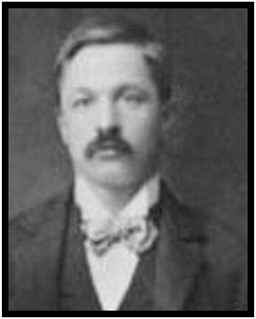WE NEVER FORGET
Gerald Lippiatt
Shot Down by Gunthugs at Age 38

Gerald Lippiatt did not come into Trinidad looking for fight. He was a striker from the northern field who was in the southern field working as an organizer. But, sadly, he took the bait when George Belcher and Walter Belk, two well-known Baldwin-Felts gunthugs, began to butt him with their elbows as he attempted to walk around them on Commercial Street. Other gunmen joined in, cursing him as they lurked about on the sidewalk, smoking their cigarettes.
Brother Lippiatt headed to the Packer block for his gun. Several of his fellow organizers in the union office tried to stop him to no avail.
“All right, you rat, let’s have it out,” Lippiatt shouted at Belk. The professional gunthug knew his business, and Lippiatt was soon lying dead in the center of the street.
The Colorado State Federation of Labor met for their yearly convention in Trinidad two days after the killing of Brother Lippiatt. The chair which would have been occupied by Lippiatt was draped in black. Perhaps, Brother Lippiatt was on their minds as they voted their support to District 15 of the United Mine Workers of America for any action deemed necessary with respect to conditions in the southern coalfields. Efforts were underway to avoid a strike against coal operators of southern coalfields, but the likelihood of avoiding that strike was fading with each passing day.
The coffin of Brother Lippiatt left Trinidad accompanied by the delegates from northern Colorado who were returning home from the C. F. of L. Convention. Gerald Lippiatt was brought home to Colorado Springs for burial. As the flag-draped coffin was taken from the baggage car and loaded onto the hearse, the delegates stood silently by, hats in hand, remembering who was responsible for his murder.
It was the sad duty of John McLennan, President of District 15 of the UMWA, to call John Lawson, International Board Member, at his home in Denver to inform him of Lippiatt’s death. Lawson related the conversation he had with Lippiatt three days before his death:
“I am leaving for Trinidad tonight, John, and I want to tell you goodbye. I think I am going to be killed”
“Killed? What do you mean?”
“The gunmen have been pressing me pretty hard down there, John, but I am going back. I’ve got a hunch they are going to get me this time.”
“Then you mustn’t go. Stay here and we’ll send someone else down; someone who isn’t so well known to them.”
“No, John, I’m going back. It is my job, and I want to go. But this is my last trip. Goodbye.”
Gerald Lippiatt was born in England in 1874, and came to America in 1891 with his parents and five siblings. The family settled in Ohio. He was survived by an older brother in Colorado Springs. He was engaged to be married to Edith Green of Rugby. He was likely a father as Martelle mentions a descendant. He had been Secretary of the UMWA local union in Frederick, Colorado, and was active in the northern coalfield strike before being sent to the southern field as an organizer.
~~~~~~~~~~~~~~~~~~~~~~~~~
SOURCES
Out of the Depths
The Story of John R. Lawson, a Labor Leader
-by Barron B. Beshoar
(1st ed 1942)
CO, 1980
Buried Unsung
Louis Tikas and the Ludlow Massacre
-by Zeese Papanikolas
U of Utah Press, 1982
Blood Passion: The Ludlow Massacre
and Class War in the American West
-by Scott Martelle
Rutgers University Press, 2008
IMAGE
-Gerald Lippiatt, from website of Scott Martelle
“100 years ago today, the first death in the Colorado coal war”
-August 16, 2013
https://www.scottmartelle.com/blog/posts/10897
See also:
August 16, 1913, Gerald Lippiatt, Union Miner, Shot Down
by Deputized Company Gunthugs on Streets of Trinidad, Colorado
~~~~~~~~~~~~~~~~~~~~~~~~~
